Be Strong. Be Proud. Be Heard.
The Arc’s Self-Advocacy group helps adults with developmental disabilities become strong self-advocates. Self-advocates are people with disabilities who speak up for themselves and others. They can express themselves with spoken words, sign language, language boards and in other ways unique to themselves. Self-advocacy enables people with disabilities to live a fulfilling in the community with the support they need.
Find & like us on Facebook!
Click here to watch the video created by The Arc’s Self-Advocacy Group in 2015!
What is Self-Advocacy?
Self-Advocacy is letting others know what you need and want, but also being responsible to work to help yourself and others.
I feel happy, and excited, and proud and great!“
-Amy, Self-Advocacy Member
I feel strong!
-Jim, Self-Advocacy Member
What are the goals of the Self-Advocacy group?
- Learning valuable communication and advocacy skills
- Gaining the tools and confidence to express personal needs and build healthy relationships
- Getting involved with the community
Each meeting is tailored to the specific needs and goals of its attendees. Meetings create a safe environment for learning and growth, and help participants identify and address their questions, concerns and issues. Using a combination of interactive techniques that recognize everyone’s unique experiences, Self-Advocacy focuses on developing practical strategies for helping each person get their needs acknowledged by others. Meetings are currently held using Zoom.
Past Meeting Topics:
- Health Advocacy & Community Project. We will provide a food prep activity and talk about making nutritious food choices and living a healthy life
- It’s OK to Feel Grief – and Whatever Else You’re Feeling, We will have an opportunity to share tips for navigating emotions and feelings. We will provide activities to practice breathing exercises, mindfulness, and meditation.
- Believing in Yourself: Build your self-confidence, self-love, and self-esteem. We’ll take a look at what self-esteem is, why it’s important for a self-advocate, and how to build yours up.
- Connecting to our Community: Participants will have an opportunity to share community resources, opportunities and getting out in the community.
- Creating New Habits for Self-Care
What can I expect?
We will get to know each other and how and what we advocate for in our lives. We will learn about helping others and helping ourselves. You don’t need any special skills to join the group. We will find the best way for everyone to have fun together while we discuss and learn about important topics.
The meetings serve as a dual purpose: similar to a support group, to create community and develop relationships, and to learn and discuss important topics to self-advocacy. Some topics include: healthy relationships & boundaries; relationships, sex & safety; emergency preparedness; support from & with caregivers; legislative advocacy; and more.
One of the activities decided by members was a group poem project that could serve as an awareness tool. The group would like to share this with our community to create a deeper understanding about supporting all individuals, no matter our differences. The poem created is entitled Ableism. Ableism is the discrimination against people with disabilities. This can occur in a number of ways. Members of the group opened up to share challenging, intense, adverse experiences and the effects from these experiences. Through this, they hope to be able to create awareness and promote change for the future.
Click here to read the Ableism Poem created by Self-Advocacy in 2017
How do I join?
If you are over 16 and an eligible client of the Developmental Disabilities Administration (DDA), you are welcome to come and join. If you are not a client of DDA, and still want to get involved, contact us to find out how.
To sign up, call The Arc of Whatcom County at (360) 715-0170 or email SelfAdvocacy@arcwhatcom.org.
Self-Advocacy is sponsored by The Arc of Whatcom County with funding from the Whatcom County Developmental Disabilities Program.
